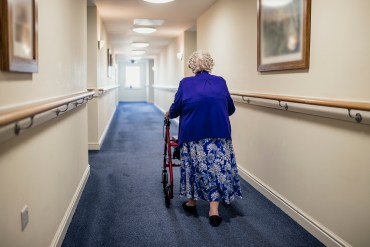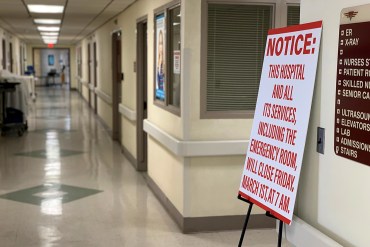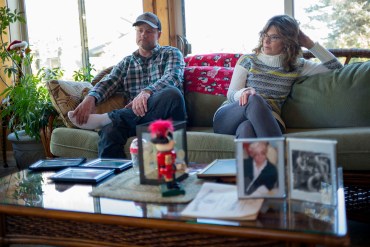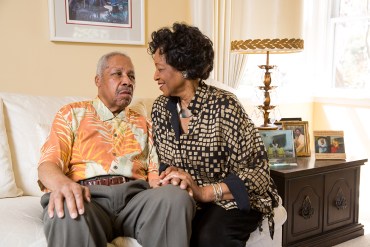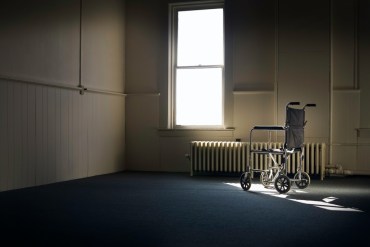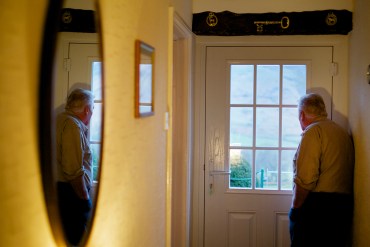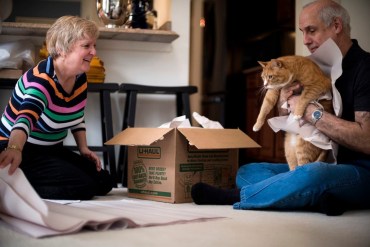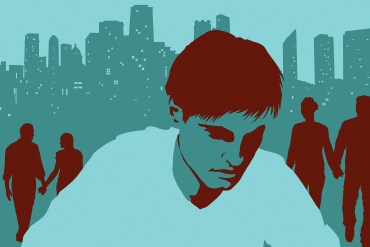Even Doctors Can’t Navigate Our ‘Broken Health Care System’
A physician’s frustration navigating a medical emergency with his elderly father reveals a complex, dysfunctional system.
Researchers Seek Sage Advice Of Elders On Aging Issues
The Bureau of Sages, a group of frail, older adults, gives feedback to researchers about what matters to older adults.
En 10 años, adultos mayores de clase media no podrán pagar por atención médica y vivienda
Para 2029, más de la mitad de las personas mayores de ingresos medios tendrán recursos financieros anuales de $60,000 o menos, incluso si se incluye el valor agregado que tengan sus propiedades.
In 10 Years, Half Of Middle-Income Elders Won’t Be Able To Afford Housing, Medical Care
An eye-opening study of demographics and income finds that the costs of assisted-living care will soon be out of reach for people on fixed incomes — and their children.
Making Smarter Decisions About Where To Recover After Hospitalization
Older adults — and their families — often find it challenging and stressful to find the best facility. And they often end up in the wrong spot, new research shows.
Economic Ripples: Hospital Closure Hurts A Town’s Ability To Attract Retirees
Celina, Tenn., has long lured retirees, with its scenic hills and affordability. These newcomers help fuel the local economy. But a recent hospital closure makes the town a harder sell.
Lethal Plans: When Seniors Turn To Suicide In Long-Term Care
In a nation where the suicide rate continues to climb, such deaths among older adults are often overlooked. A six-month investigation by KHN and PBS NewsHour finds that older Americans are quietly killing themselves in nursing homes, assisted living centers and adult care homes.
Must-Reads Of The Week From Brianna Labuskes
Newsletter editor Brianna Labuskes wades through hundreds of health articles from the week so you don’t have to.
Doughnut Hole Is Gone, But Medicare’s Uncapped Drug Costs Still Bite Into Budgets
Beneficiaries pay 25 percent of the price of their brand-name drugs until they reach $5,100 in out-of-pocket costs. After that, their obligation drops to 5 percent. But it never disappears.
More Older Adults With Joint Replacements Recover At Home, Not Rehab
Research shows that going home after elective hip and knee replacements is a safe alternative for many patients.
Estados presionan para que familiares que son cuidadores reciban créditos fiscales
Varios estados, incluidos Florida, Nueva Jersey y Nueva York, están considerando legislaciones que ayuden a los cuidados familiares con créditos impositivos.
States Push For Caregiver Tax Credits
Families often spend thousands of dollars caring for ailing loved ones at home. Lawmakers in California and at least seven other states want to provide some financial relief with state income tax credits.
Confusión costosa: visita de bienestar de Medicare no es lo mismo que el chequeo anual
Es esencial que los adultos mayores sepan la diferencia entre ambas visitas al consultorio y lo que está cubierto, para no recibir cuentas médicas sorpresa.
Costly Confusion: Medicare’s Wellness Visit Isn’t The Same As An Annual Physical
Medicare doesn’t pay for an annual physical, but it does cover an annual wellness visit focused on preventing disease and disability by coming up with a “personalized prevention plan” for future medical issues. It is important to use the correct term when scheduling a doctor’s visit.
Trump escucha quejas de la industria y bajan las multas en hogares de adultos mayores
Bajo la administración actual, la multa promedio se redujo a $28,405, muy por debajo de los $41,260 en 2016, el último año en el cargo del presidente Barack Obama.
Nursing Home Fines Drop As Trump Administration Heeds Industry Complaints
Inspectors are citing nursing facilities for violating health and safety more often than during the Obama administration. But the average fine is nearly a third lower than it was before President Donald Trump took office.
Comprendiendo la soledad en los adultos mayores y diseñando una solución
La soledad se presenta en diferentes formas que requieren respuestas diferentes. Hay una soledad emocional, que afecta a nivel íntimo, y otra social, la percepción que la persona no encaja más en distintos entornos.
Understanding Loneliness In Older Adults — And Tailoring A Solution
New research shows that older adults want close relationships with the people they care about and meaningful social roles.
How To Zero In On Your Final, Forever Home While Skirting Disaster
Confronting changing health care needs, fixed incomes and problems created by climate change can be overwhelming when trying to pinpoint that dream location, but taking time and doing research makes it a dream come true, say these seniors.
Siempre conectados con miles de amigos, pero todavía se sienten solos
La soledad, que se considera epidémica entre los adultos mayores, está alcanzando a las generaciones jóvenes, siempre conectadas en las redes sociales.





